Prof. Muhammad Hamid Zaman and Dr. Afreen Siddiqi
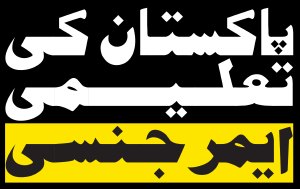 Pakistan’s flood of 2010 was the largest in the country’s history. We still haven’t recovered from the incredible destruction of life, property and infrastructure that it left in its wake. No one can argue that if such a calamity were to occur year after year, the existence of the country would be in jeopardy. The economic impact of a 2010 like flood year after year is no different than the long-term consequence of illiteracy in Pakistan!
Pakistan’s flood of 2010 was the largest in the country’s history. We still haven’t recovered from the incredible destruction of life, property and infrastructure that it left in its wake. No one can argue that if such a calamity were to occur year after year, the existence of the country would be in jeopardy. The economic impact of a 2010 like flood year after year is no different than the long-term consequence of illiteracy in Pakistan!
This evaluation and other mind-numbing statistics were made public earlier this week by the Pakistan Education Task Force. You can find the report here. According to the report, ten percent of all the children in the world, who are not in any school, live in Pakistan. This places Pakistan second on the list of “out-of-school” children in the world. The number of children not in school in Pakistan is around seven million, which is roughly the entire population of Lahore. The numbers are even worse for adults, particularly women in rural areas, where less than a third of the female population has ever attended any school.
Our annual spending on education, which should be at least upwards of 4%, has gone down to 1.5% of our GDP. Perhaps a more shocking fact is that this amount is less than the subsidy given to PIA alone.
The report paints a very bleak, but a detailed picture of our future and our very existence as a nation if we do not do anything about fixing this mess. As we read the report (which all of us should do) and think about 2011 as an year of education emergency, we should ask ourselves two questions: why, and how?
The first question is why are we in a state that we are in? Poverty is a good answer to start with, but it not an accurate one. Roughly twenty-six countries that are poorer than Pakistan have a better education system. Perhaps we can blame the politicians, and not all of it will be unjustified. In a society where lawmakers are illiterate and proud of it, the current state of the education system should not be surprising. But the problem is much bigger and far more complex than any one individual factor. We can go for any scapegoat of our liking, or go for the flavor of the week, but the reality is that we all have not done our part in improving the system.
This takes us to our next question, how do we fix it? This is, perhaps, a more interesting yet more difficult of the two questions. We are interested in finding out what you, our readers, think? How should we address this issue?
We need a multi-faceted, integrated and a broad-based approach. An approach that starts with each home, yours and ours, at the grassroots level. At the same time there is a top-down approach, from the federal and local governments. But it sounds easier than it is. We need to pay for this. How are we going to raise a billion dollars per year (as recommended by the task force) to pay for this? Should we introduce new taxes? If we are ready to dig deep into our pockets for floods and earthquakes, why not education?
The issue of accountability and governance is also central to the fix. With nearly a fourth of our nations teachers absent from school every day, we need better accountability. The role of media, both print and electronic, cannot be understated. But we have to remember that they are not charity, and do not operate like one either. We have to come up with innovative ways of making education attractive and the discussion profitable for them. The public pressure on political parties to make education a central and core mission has to be there. The list of things that we can do is long but the time to do them is not.
Great civilizations, including that of the Indus, were lost due to great floods. Lets get to work, lest we lose ours to the flood of illiteracy.
Dr. Zaman is an Assistant Professor at Boston University and Dr. Siddiqi is a research scientist at Massachusetts Institute of Technology.
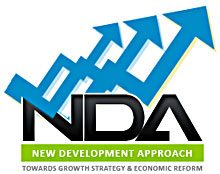 (Editor’s Note: We offer this as sixth in a series on Pakistan’s New Growth Strategy – see here and here and here and here and here. Although not directly related to the growth strategy being devised by the Planning Commission of Pakistan, the issue of education – and the results of the Pakistan Education Task Force are centrally important to that mission. We do hope you will have your say; if we do not speak up, then who will!)
(Editor’s Note: We offer this as sixth in a series on Pakistan’s New Growth Strategy – see here and here and here and here and here. Although not directly related to the growth strategy being devised by the Planning Commission of Pakistan, the issue of education – and the results of the Pakistan Education Task Force are centrally important to that mission. We do hope you will have your say; if we do not speak up, then who will!)


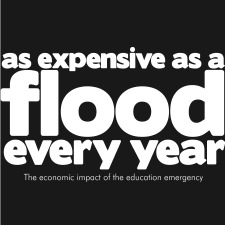

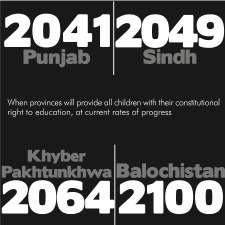
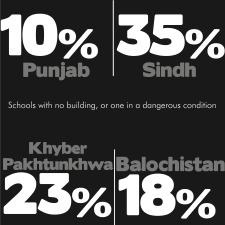
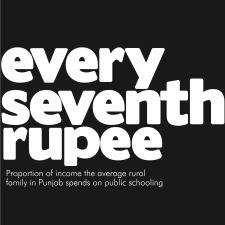
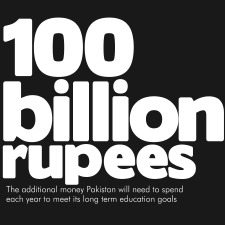
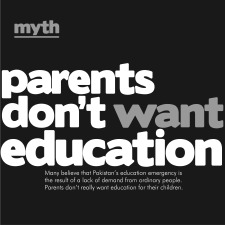
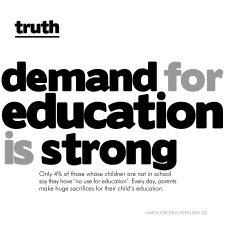

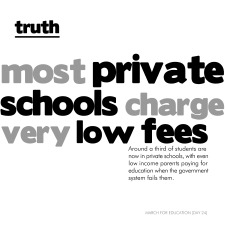
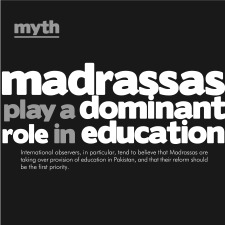
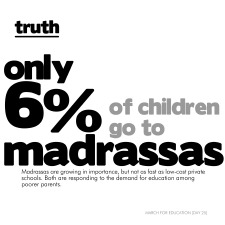
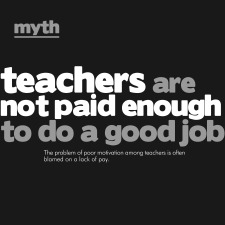
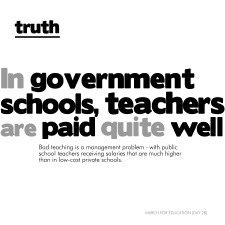



















































@Aisha
At least read the article you are ranting about. The authors actually say that those alone are NOT the problem!
And where is anyone defending madrassars. The stats in the report just say that they are NOT the dominant place of education. Drawing room experts love just blaming them. It is not as simple as that
What is so special about this issue. Is this really our big problem. I think ATP is like always distracting attention from real issues. It writes nothing about NAB head’s forced removal by our corrupt supreme court or about how PML(N) is sabotaging democracy and all the important politics in Pakistan. Instead you take up these non-issues that are not urgent and could be dealt with later, like this education or like bridges or short stories. For Gods sake, Pakistan’s future is being messed up by Nawaz Sharif and Ch. Iftikhar and THIS is all you can think of!!!!!!
YOU GUYS ARE THE PROBLEM.
I have really stopped reading ATP for this reason that it makes these unimportnat things into so big. I now read LUBP only since it is about REAL Pakistan issues. Please, everyone, boycott ATP and move to LUBP: http://criticalppp.com/
Excellent initiative. Info may not be new but it is presented powerfully and reminds people of what is really important here. I salute ATP again for highlighting this in such a nice way. I just signed the petition that goes with this campaign and hope others will also do it here. The target is 10,000 signature and is already above 6000. So please do how your support for education in Pakistan: http://educationemergency.com.pk/
Being a student of Computer Science , what i feel is that our education system have been completely collapsed.When ever i think about my future the first thing that comes in my mind is “How Much I Will Earn ?” and “How I Will Get The Job?” . Now the point is that those who are taking education have no other task rather than making good money and feed there parents when they get old. So whats attracting them towards education is Money Money and Money .
Now lets talk about the poor people who really cant afford education.What they know is the same as other people think that education have nothing to do except making good money in future , So instead of spending lacks on education they use their children for work.
The question arises “How to change their minds ? ” . Well first of all we (People of Pakistan with Government Of Pakistan ) should work for the betterment of government schools because the more good environment you get the more good and intelligent students you can produce.Secondly , government should focus on fundings for those who really cant afford it or in other words education should be free specially in government school and last but not the least the most important thing is the implementation of “Child Labor Laws ” which is the most difficult thing to do due to poverty ( Its another detailed discussion ).
Another most important thing is the availability of good schools and colleges in rural areas with highly qualified faculty. According to a news channel ” A girl had to travel 12 hours for giving her matriculation board exams at Lahore , Punjab “. Similarly the upgradation of the education system is very important that is the introduction of updated books , making student work more practical rather than the “RATA” system and also changing the minds of students by providing them such atmosphere that they do not take education as a burden as its most common thing in our students.
The reason why students prefer Cambridge System rather than our Board System is that they focus more on practical work rather that the RATA system. They make student use their minds but here in our system we have to learn word by word and write it just for the sake of good marks.I still remember that i read a story “Taimur Aur Chunti ” in my URDU BOOK when i was in class 2 and my younger brother after many years is reading the same story. So these are the minor points that can bring major changes.
It is not difficult to improve our education system but all we have to do is to sacrifice by giving time for such things. We all are focusing on making money instead of thinking about the one sitting besides us.We have nothing in our mind except thinking of our own self. The reason is none other but “YOU” and “ME”.
Rants such as in earlier comment aside, the fact is that education is a commodity. Like any other commodity it works on supply and demand. The question is what does education gain you. If you think it will be a good investment you will invest in it, otherwise you will not. In Pakistan it is in fact NOT a good investment. Education does not change people’s life because there is nepotism everywhere. Change that and people will themselves respond with higher personal investments in education.